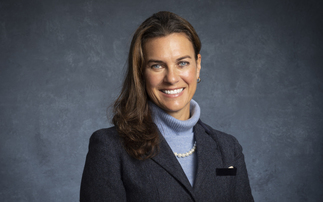Latest addition of best practice guide offers insight into those firms attempting to 'break the climate stalemate'
Some of the world's leading green businesses have featured in an updated edition of the Low Carbon Business Compendium, designed to highlight the steps the corporate sector can take to slash carbon emissions and tackle climate risks in the wake of the historic Paris Agreement.
The compendium has been developed by the Green Growth Platform (GGP) initiative with support from the Cambridge Institute for Sustainability Leadership (CISL), the Norwegian government, and the Prince of Wales's Corporate Leaders Group (CLG).
It was published late last week and provides case studies on how nearly 30 global businesses from across Europe are taking ambitious steps to reduce their carbon emissions, marking a sharp increase on the 17 businesses featured in the first edition of the compendium in 2011.
Sandrine Dixson-Declève, director of the Cambridge Institute for Sustainability Leadership's EU office said the report highlighted how many businesses are responding positively to European climate policies.
"This compendium brings together important examples of European businesses' leadership, which shows the effect that bold policy ambition and impressive business achievements can have both in tackling climate change and building a new climate-proof economy," she said. "These businesses have a clear message to send to European policy makers on how to achieve a low-carbon economy for Europe and this compendium is tangible evidence of that desire."
The companies featured in the compendium include household names such as Tesco, Thames Water, EDF Energy, Heathrow, BT, Philips, IKEA, and Unilever.
The detailed case studies all stress the significant financial savings and wider business benefits that tend to come with ambitious emission reduction programmes, while also highlighting the importance of stable and predictable policy environments.
Writing in the foreword to the report, Norwegian Minister of Climate and Environment, Vidar Helgeson, said the business community was absolutely critical to the success of last year's Paris Agreement and on-going efforts to break "the climate stalemate".
"The private sector was important in reaching the Paris Agreement," he wrote. "It is the private sector that leads the way in showing us what is possible technologically. Without the strong involvement from many in the private sector, the path to Paris would have been much steeper...The leading positions, as taken by companies across disciplines and sectors make me optimistic. Through partnership between the private and public sectors we are breaking the climate stalemate. Together we can, and will, find the smart and green solutions that secure economic growth, jobs and emission reductions."
This article is part of BusinessGreen's Road to Paris hub, hosted in association with PwC.







